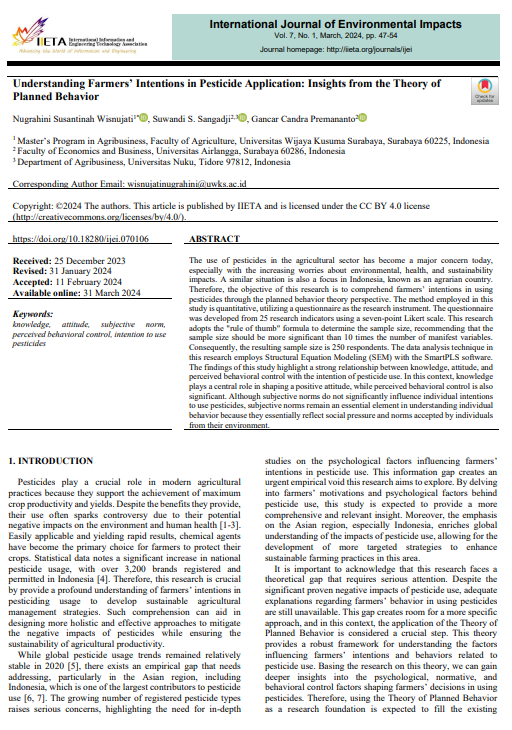AUTHOR
Nugrahini Susantinah Wisnujati
Suwandi S. Sangadji
Gancar Candra Premananto
DESCRIPTION
The use of pesticides in the agricultural sector has become a major concern today, especially with the increasing worries about environmental, health, and sustainability impacts. A similar situation is also a focus in Indonesia, known as an agrarian country. Therefore, the objective of this research is to comprehend farmers’ intentions in using pesticides through the planned behavior theory perspective. The method employed in this study is quantitative, utilizing a questionnaire as the research instrument. The questionnaire was developed from 25 research indicators using a seven-point Likert scale. This research adopts the “rule of thumb” formula to determine the sample size, recommending that the sample size should be more significant than 10 times the number of manifest variables. Consequently, the resulting sample size is 250 respondents. The data analysis technique in this research employs Structural Equation Modeling (SEM) with the SmartPLS software. The findings of this study highlight a strong relationship between knowledge, attitude, and perceived behavioral control with the intention of pesticide use. In this context, knowledge plays a central role in shaping a positive attitude, while perceived behavioral control is also significant. Although subjective norms do not significantly influence individual intentions to use pesticides, subjective norms remain an essential element in understanding individual behavior because they essentially reflect social pressure and norms accepted by individuals from their environment.

